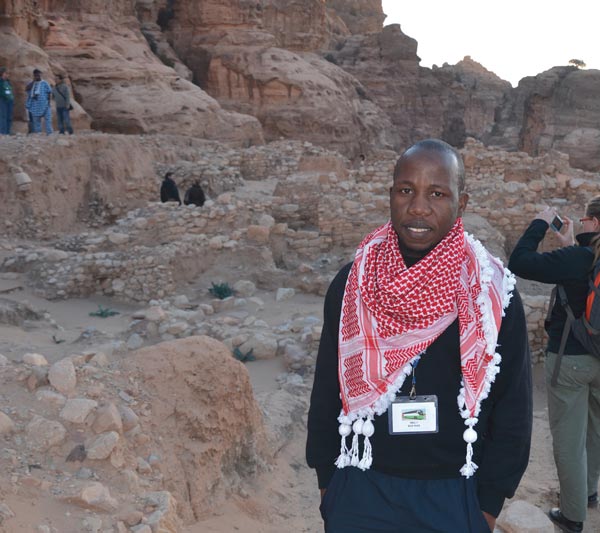Dr Ndukuyakhe Ndlovu in the Department of Anthropology and Archaeology has spent most of his research career studying rock art and, in particular, variations in the portrayal of animals at different geographic locations. His interest is also in the analysis of the cosmological models that have defined rock art studies, especially in recent decades, and the link between rock art and the environmental conditions prevailing at the time.
Dr Ndlovu’s research has identified a particular challenge in southern African rock art studies, whereby understanding derived from very few geographical locations and a limited number of animals is used to make deductions about the significance of animals in rock art in general. His research addresses this deficiency by investigating regional variation in the portrayal of animals and, in particular, in the patterns in animal imagery across the least studied hunter-gatherer rock art areas in southern Africa.
Researchers have studied rock art to improve their understanding of its origins and to develop insights into the people whose art they study. Dr Ndlovu has shown in his published research the importance of providing reasons for the existence of differences in the archaeological record, and thereby to transcend chronologies and mere description that has come to define the discipline.
 Polychrome images of eland, considered the most spirituality significant animal in southern African rock art studies. The black colour of one eland is charcoal, probably done by boys herding livestock in the area.
Polychrome images of eland, considered the most spirituality significant animal in southern African rock art studies. The black colour of one eland is charcoal, probably done by boys herding livestock in the area.

In 2015 Dr Ndlovu received a three-year National Research Foundation grant under the African Origins Platform, which will significantly enhance the scope of current research projects through the fieldwork involved in collecting primary data and research opportunities for postgraduate students.
He has also been appointed as Editor-in-Chief of the South African Archaeological Bulletin (SAAB) by the Association of Southern African Professional Archaeologists (ASAPA) Council.
At UP he was one of the 2015 Inaugural TYRLP (Tuks Young Research Leader Programme) Fellows, a programme that aims to grow early career academics in the areas of thought leadership, team development, engagement and collaboration to enable them to address and contribute to solving the complex issues faced by society.